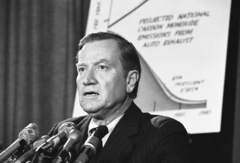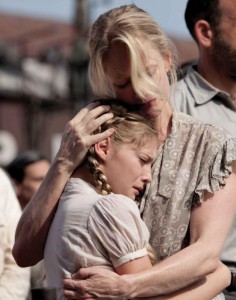CFP: special edition of THE PROJECTOR on new approaches to food and film
Hello all,
The following is a CFP sent out by my colleague Cynthia Baron, the editor of THE PROJECTOR, an electronic journal of film, media, and cultural studies. She is in the process of putting together a special issue on food in film and media studies. The things that interest Cynthia (and myself) about food studies (food harvesting and gathering techniques, the future of food and farming, sustainability, etc.) are also of interest to folks in ecomedia studies. So, we kindly encourage pieces about food and media with an ecomedia emphasis.
Please see the CFP below for more information. If you have any questions, please don’t hesitate to contact Cynthia (her email is below) or me (msbernard@gmail.com). Thanks!
The Projector: An Electronic Journal on Film, Media, and Culture is seeking research essays for an issue on food, film, and media/consumer culture.
While there are a collection of food films that have acquired canonical status, e.g., Babette’s Feast, Tampopo, Big Night, foodways play an integral role in scores of films and media-related consumer practices that have not been considered in the ongoing research. The journal is looking for essays that analyze and contextualize representations that are not covered extensively in volumes such as Reel Food, ed. Anne Bower, Food, Film, and Culture, by James Keller, or Food in the Movies, by Steve Zimmerman and Ken Weiss. It is interested in research that examines food (and film) practices that surround and run parallel to the consumption of contemporary media.
The journal is looking for articles that: analyze the foodways components that film and media do and do not represent; examine representations of food and water resources in fiction and/or documentary form; shed light on product placement and/or co-promotion by blockbuster cinema and fast food franchises. We are interested film, media, and cultural studies that examine foodways and representations of food and drink in light of: cultural context, genre conventions, auteurs’ preoccupations, and/or questions of race, gender, sexuality, and so on.
The journal is looking for material that illustrates ways that representations of food and food behaviors convey meaning in individual scenes, even when cooking, eating, and drinking are not significant throughout a film. We are also interested in research and analysis that explores foodways in films such as cannibal films, vampire films, and other genres or subgenres that problematize the food product.
Essays should be sent electronically to Cynthia Baron at cbaron@bgsu.edu by December 31, 2012.Please use MS Word and MLA citation. Send the essay as an attachment. Author and affiliation information must appear only in the email. Essays should be about 20-25 pages.
In advance of submitting an essay, please take a look at current and recent issues, submission policies, and so on: http://www.bgsu.edu/departments/theatrefilm/projector/page30082.html
If there are questions after visiting the journal, inquiries can be sent to Cynthia Baron cbaron@bgsu.edu
My colleague and I are seeking seeking additional presenters for a pre-formed panel on environmental ethics and cinema. Our respective papers will center on classical filmmaking practices in the sustainability era and the “slow cinema” movement’s representation of environmental injustice.
We are seeking proposals that center on the conjunction of environmental ethics and any aspect of film, including production, reception, content, style, representation or exhibition.
Because of ASLE’s requirement that panels feature presenters from more than one academic level, we are specifically seeking papers from associate or full professors, graduate students, and/or postdocs (NOT assistant professors).
Please contact Nicole Seymour at neseymour@ualr.edu with any questions, or to propose a paper.
This paper looks at the representation of carnal pleasure in the films of Catalan director Bigas Luna. The artistic project of this prolific filmmaker and artist is typified by an interrogation of boundaries and the possibility of their transgression. In this paper the nexus of consumption of and by the body, as it relates to our consumption of the image, locates a further interrogation of boundaries. The permeability of the body in the act of eating is related here to a Catalan cultural tradition of Bahktinian excess which, in its threat to the frontiers of the body, also posits a threat to the established (hegemonic Spanish) cultural order.
This mode of representation develops through an awareness of the body not only on-screen but through embodied spectatorship. Drawing on the work of Vivian Sobchack and Elspeth Probyn this paper highlights food’s ambivalent relationship to the subject and calls for a rethinking of subjectivity through the depiction of epicurean excess. A cinematic technique, which focuses on the less salubrious aspects of our somatic existence, promotes a discomfort which acknowledges the breaking down of distance between self and other, on-screen and off-screen. This porosity of the body is best represented by food and in these films it is also related to sexual relationships. Bigas Luna’s approach, therefore, goes some way to subvert the concept of a national identity as separate and clearly defined, and tentatively broaches the ethics of an embodied approach to the moving image text.
CFP: From “Other†to Us: Reclaiming the Eco-Cinematic Space (ASLE 2013 ecomedia panel)
Deadline for submission: October 15, 2012.
As ecocinema studies establishes itself as a vibrant interdisciplinary extension of literary ecocriticism, it makes room for more incisive discussions of films produced by and with communities who have been historically marginalized and “Othered†by mainstream Hollywood and/or other national cinemas. This call invites proposals for papers that direct our attention to such films and their contexts. We are keen to see papers that speak to the conference themes of migrations, energies, and limits and that engage and extend current ecocinema studies scholarship.
Submission guidelines: Please send a 300 word abstract with your name and affiliation to Alexa Weik von Mossner at Alexa.WeikvonMossner@aau.at and Salma Monani at smonani@gettysburg.edu by October 15, 2012.
Assistant Professor in Nature Writing (non U.S.)/Environmental Studies/Digital Humanities [17599]
The English Department at the University of Connecticut, Storrs Campus, invites applications for a FT (9-mo.) tenure-track faculty position at Assistant Professor level, with a specialty in Nature Writing (non U.S.) and strong interests in Environmental Studies and Digital Humanities, to start Fall 2013.
Minimum Qualifications: Ph.D. in English or other appropriate field; expertise in non-U.S. Nature Writing, Digital Humanities, and Environmental Studies; a record of, or strong potential for, distinguished scholarship and effective teaching and mentoring at graduate and undergraduate levels; and evidence of engagement in institutional and/or professional service. Preferred Qualifications: Experience with digital mapping programs; ability to teach and conduct research in some broader field(s) of study; publication(s) in national/international journals; and the ability to contribute through research, teaching, and/or public engagement to the diversity and excellence of the learning experience. Equivalent foreign degrees acceptable. Selected candidate will teach upper-division courses and graduate seminars in her or his field(s) of expertise, as well as occasional survey/general education courses, contribute to UConn’s new Environmental Studies program, and, in concert with other new departmental hires and with UConn’s Digital Media Center, help us develop significant digital components in our research, teaching, and public programming. Appointment is at Storrs campus with possibility of work at regional campuses. Salary is competitive based on qualifications. Visit us at www.english.uconn.edu/, www.dmc.uconn.edu, and www.ecohusky.uconn.edu/outreach/env-studies.html.
Apply to Husky Hire at www.jobs.uconn.edu by submitting your cover letter, CV, evidence of teaching experience, and a 15-25 page writing sample. Five (5) letters of recommendation should be sent to: Margaret Breen, Interim Head, Department of English, NW/ENV search, 215 Glenbrook Road, Unit 4025, University of Connecticut, Storrs, CT 06269-4025. Screening of applicants will begin immediately and continue until position is filled. The University of Connecticut is an EEO/AA employer.
Whether you watch the British version featuring the voice of Sir David Attenborough or the U.S. version voiced by Alec Baldwin, it’s difficult to deny the power of this remarkable footage from Antarctica of a brine-cicle forming beneath the ocean surface. The footage will be included in the forthcoming BBC/Discovery series Frozen Planet.
 Over the past two days news agencies around the world have been celebrating the life and accomplishments of Russell Train, who passed away on September 17 at the age of 92. Russell is best known for playing critical role in securing bipartisan support for such landmark environmental legislation as the Safe Drinking Water Act, the Toxic Substances Control Act, and Endangered Species Act. As he wrote in his 2003 memoir Politics, Pollution, and Pandas, “That environmental agenda was so wide-ranging, and yet so comprehensive, as to be without precedent in the history of the United States.” He was the second person to chair the Environmental Protection Agency, a position he held from September 1973 to January 1977.  After he left politics, Train oversaw the growth and development of the World Wildlife Fund, heading the American chapter of that organization from 1978-1985. A staunch conservative, Train recognized that environmental protections trump partisan politics, a position that many media pundits say would simply be impossible in today’s toxic political culture. We do not often have time to take note of the many people from all walks of life who have dedicated their lives to securing a sustainable future but at this critical time in history, Train’s passing may serve as a gentle reminder that we are all in this together, regardless of our gender, ethnicity, or political affiliation.
Over the past two days news agencies around the world have been celebrating the life and accomplishments of Russell Train, who passed away on September 17 at the age of 92. Russell is best known for playing critical role in securing bipartisan support for such landmark environmental legislation as the Safe Drinking Water Act, the Toxic Substances Control Act, and Endangered Species Act. As he wrote in his 2003 memoir Politics, Pollution, and Pandas, “That environmental agenda was so wide-ranging, and yet so comprehensive, as to be without precedent in the history of the United States.” He was the second person to chair the Environmental Protection Agency, a position he held from September 1973 to January 1977.  After he left politics, Train oversaw the growth and development of the World Wildlife Fund, heading the American chapter of that organization from 1978-1985. A staunch conservative, Train recognized that environmental protections trump partisan politics, a position that many media pundits say would simply be impossible in today’s toxic political culture. We do not often have time to take note of the many people from all walks of life who have dedicated their lives to securing a sustainable future but at this critical time in history, Train’s passing may serve as a gentle reminder that we are all in this together, regardless of our gender, ethnicity, or political affiliation.
 No, this is not a still from The Hunger Games. Though she looks an awful lot like the mother of Katniss Everdeen, Nettie Featherstone (photographed here in 1938 by U.S. Farm Security Adminstration photographer Dorothea Lang) was among the many U.S. citizens who faced a daily struggle to feed herself and her family during the darkest days of the Great Depression.
No, this is not a still from The Hunger Games. Though she looks an awful lot like the mother of Katniss Everdeen, Nettie Featherstone (photographed here in 1938 by U.S. Farm Security Adminstration photographer Dorothea Lang) was among the many U.S. citizens who faced a daily struggle to feed herself and her family during the darkest days of the Great Depression.
While I admit to being well behind the curve in responding to Susan Collins’ wildly successful series of novels and the popular film adaptation, perhaps it is because as the father of an 11-year-old, the shocking brutality of the story (which by the way is far less brutal than the Japanese novel and film Battle Royale from which it borrows its central plot elements) required considerable time for reflection. Why would such a story be so popular among pre-teen readers and film goers, I wondered. Now that I’ve read the novel a few months after seeing the film it has finally hit me just how deeply the rhetoric of jobs at any cost to society and the environment filling the mediascape since the Great Recession of 2008-09 has infiltrated the imaginations of today’s young people.
Although at first I was somewhat disappointed in the filmmakers’ (including Collins, who co-wrote the screenplay) decision to omit the novel’s references to global environmental change as a background plot element, I’ve since decided that the costuming choices made for the film provide perhaps an even stronger (and more subtle) insight into the connections between our time in history and the socio-ecological struggles faced by earlier generations.
As I prepare to start another year teaching first-year college composition, which gives me the chance to work with students in every major, I am reminded that for the past several years my students have been increasingly fearful that a college education is providing them little more than preparation for our own version of the Hunger Games. Reading and viewing The Hunger Games has renewed my belief that cultivating a shared interest in environmental concerns offers us all a way to build a sustainable future through cooperation rather than competition and a way of breaking down the walls of fear and doubt that seem to separate urban from rural, liberal from conservative, person from person.

